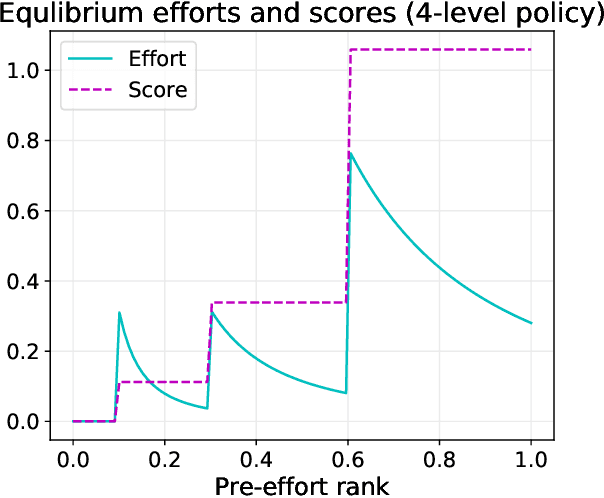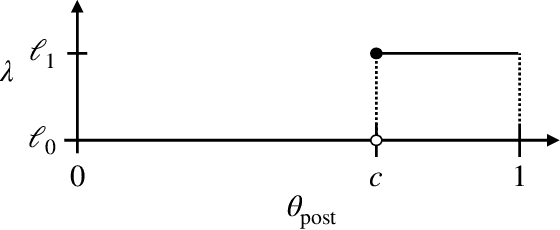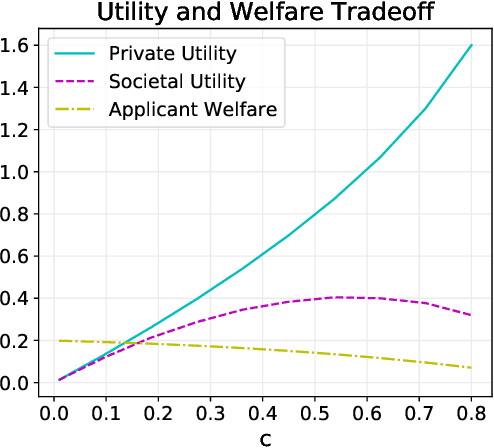Strategic Ranking
Paper and Code
Sep 16, 2021



Strategic classification studies the design of a classifier robust to the manipulation of input by strategic individuals. However, the existing literature does not consider the effect of competition among individuals as induced by the algorithm design. Motivated by constrained allocation settings such as college admissions, we introduce strategic ranking, in which the (designed) individual reward depends on an applicant's post-effort rank in a measurement of interest. Our results illustrate how competition among applicants affects the resulting equilibria and model insights. We analyze how various ranking reward designs trade off applicant, school, and societal utility and in particular how ranking design can counter inequities arising from disparate access to resources to improve one's measured score: We find that randomization in the ranking reward design can mitigate two measures of disparate impact, welfare gap and access, whereas non-randomization may induce a high level of competition that systematically excludes a disadvantaged group.
 Add to Chrome
Add to Chrome Add to Firefox
Add to Firefox Add to Edge
Add to Edge